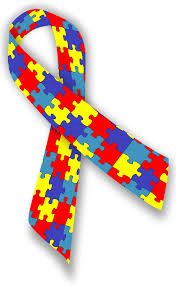 April is Autism Awareness month, and this week is National Dental Hygienists week, so I decide to blog about both. I dedicate this blog post to my friend Allison and all families who know Autism and Aspergers well. During my time as a dental hygienist I have been exposed to clients of all ages and backgrounds including those with unique needs. After recently meeting Allison I became aware that I did not have any experience with autistic children.
April is Autism Awareness month, and this week is National Dental Hygienists week, so I decide to blog about both. I dedicate this blog post to my friend Allison and all families who know Autism and Aspergers well. During my time as a dental hygienist I have been exposed to clients of all ages and backgrounds including those with unique needs. After recently meeting Allison I became aware that I did not have any experience with autistic children.
How is that possible? Did I in fact treat autistic children but didn’t know it? Would a parent not indicate that on a medical chart? Could I treat clients in a city with a population of 1 million and not see 1 autistic child when the stats from Centers for Disease Control and Prevention (CDC) identify that 1 in 88 children is diagnosed with autism? Was I so oblivious that I may have chalked up a child’s behaviour to “high maintenece” when really it was typical behaviour of an autistic child?
I don’t know the answer. I knew that after reading Allison’s blog post “Life with Liam“, about an orthodontic appointment for her 9 year old son that I was certain I may not know how to make a dental hygiene visit for an autistic child a positive one, an experience that both child and caregiver look forward to as opposed to viewing it as one more necessary but unpleasant life task. This was disturbing to me because I sincerely want to make dental hygiene visits a great, educational experience for both children and their caregivers. It is with children I feel hygienists have the opportunity to make the greatest impact – sharing preventative dentistry knowledge – ensuring a life of “no drilling & filling”.
Of course I studied “special needs” in dental school, but how much could I recall of dealing with autism? not much. I was feeling very inadequate with my limited knowledge of the unique challenges associated with dental hygiene home care, best time of day for dental hygiene appointments, and management in the clinic. I was also certain my dated knowledge wouldn’t hold a candle to the reality of today for these families. Continuing education throughout life is a reality.
I have since learned that Autism is a general term, and there are various functioning levels – each individual is just that –INDIVIDUAL. Autism Speaks Canada has an informative website and states that “Autism spectrum disorder (ASD) and autism are both general terms for a group of complex disorders of brain development. These disorders are characterized, in varying degrees, by difficulties in social interaction, verbal and nonverbal communication and repetitive behaviors. They include autistic disorder, Rett syndrome, childhood disintegrative disorder, pervasive developmental disorder-not otherwise specified (PDD-NOS) and Asperger syndrome. ASD can be associated with intellectual disability, difficulties in motor coordination and attention and physical health issues such as sleep and gastrointestinal disturbances. ”
It is best for the caregiver to outline the functioning level of the child (where they are on the spectrum)- as well as details about sensory issues that may arise and discuss how to best handle them when at a dental hygiene appointment. If this conversation can happen prior to the child’s appointment that would be best. The dental hygienist will welcome any information that can facilitate an enjoyable visit. You know your child best, and know what sensory stimuli could be avoided or reduced. A dental hygiene clinic can have some advantages in terms of sensory stimuli when compared to a traditional dental clinic. There will be no dental drilling noises, smell of root canal mediciments, or dental materials like monomer being used in a hygiene clinic. Lighting may be an issue, so best to discuss this ahead of time. Caregivers can practice a visit at home before going to the clinic so the child has some familiarity with what may happen – practicing laying back, looking in the mouth, and counting teeth.
From the dental hygienists perspective be prepared to book a longer appointment so it isn’t rushed, the child has the time needed, you can answer all of the caregivers questions, and you can review techniques for oral home care. Repetition and routine can be very reassuring for autistic children. Establishing a relationship with one particular dental hygienist, rather than seeing someone different each visit can achieve this. Like appointments with all children, what works one day may not work the next, so be prepared with knowledge and do not hesitate to ask for recommendations from caregivers, and have patience. The first appointment may end up being a familiarity time, and perhaps no treatment carried out. Stretch your mind and skills and grow with the child & family.
Are you a dental hygienist looking for a resource to use? Dental hygienist and mother, Karen Raposa devoted six years of her life to writing “Treating the Dental Patient with a Developmental Disorder”. She cited her autistic son as her inspiration for writing the book. This book shares information on how to provide dental health services for patients with developmental disorders. You will also find the best information comes directly from parents and caregivers. Keep an open mind…. we are always learning.
